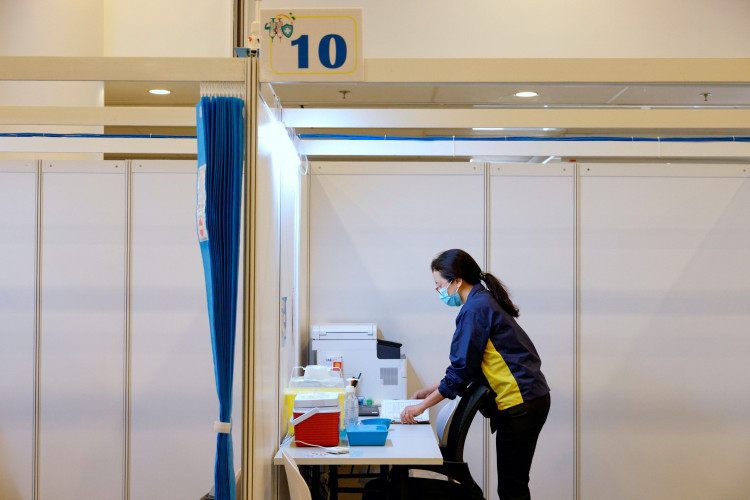Unemployment in Hong Kong reached its highest peak since the 2004 SARS crisis, according to government data released on Tuesday, as residents and businesses struggle to stay afloat amid strict social distancing and low consumption levels.
The rate of joblessness in the city rose to 7.2% in the December to February period, up from 7.0% in November to January, a survey of 74,000 people by the census and statistics department showed.
“The labor market [faces] challenges in the near term as the epidemic has yet to be fully contained and inbound tourism remains frozen,” said Hong Kong secretary for labor and welfare Law Chi-kwong in a statement.
Men aged 20-24 were most affected with more than 16% without jobs, while young women recorded the highest rate of underemployment. Overall, underemployment as a whole increased to 4.0% from 3.8% in the period prior.
“In our view, the Jan-Feb rise in seasonal adjusted unemployment rate could be due to the lagged effects from the protracted Covid-19 locally, still-tight social distancing rules and prolonged travel bans between Hong Kong with the rest of the world,” Lisheng Wang, a China-focused economist with Japanese financial firm Nomura, told Business Times on Tuesday.
Increased joblessness was most acute among import and export workers, and employees in the postal and courier sector, as well as educators, artists and those in the entertainment industry.
Food and beverage service providers and retailers have been the hardest hit by underemployment.
“With the unemployment rate surging close to a 17-year high of 7.2% in February, we expect fiscal policy to remain accommodative to help the economy return to normal,” Wang noted.
In his 2021-22 budget address last month Hong Kong financial secretary Paul Chan announced a HK$120 billion ($15.45 billion) relief package, bringing some stability to the city’s pandemic-ravaged labor market and lowering the fiscal deficit to roughly HK$101 billion for the next year.
This is down from last year’s record high of HK$257 billion ($33 billion), according to Wang, but the government still anticipates deficits to run for the next five years leading Nomura to raise its deficit forecast to 3.6% from 2.5% for 2021-22.
“However, the bottlenecks in Hong Kong’s labor market recovery are more about the domestic containment of COVID-19 [...] rather than just the government financial relief,” he said.
As the citywide vaccination program continues, labor secretary Law expects things to look up.
“With the launch of the COVID-19 Vaccination Programme, the threat of the epidemic may gradually recede and this will help ease the pressure on the labour market later in the year,” he said.
Some 206,000 people have received their first dose of the vaccine, either Sinovac or Pfizer BioNTech, so far and health authorities lowered the eligibility threshold on Monday to include another 5.5 million city residents aged 30 and over.
“The ongoing vaccination programme should be one of the key solutions for domestic labour markets to recover,” Wang said.






